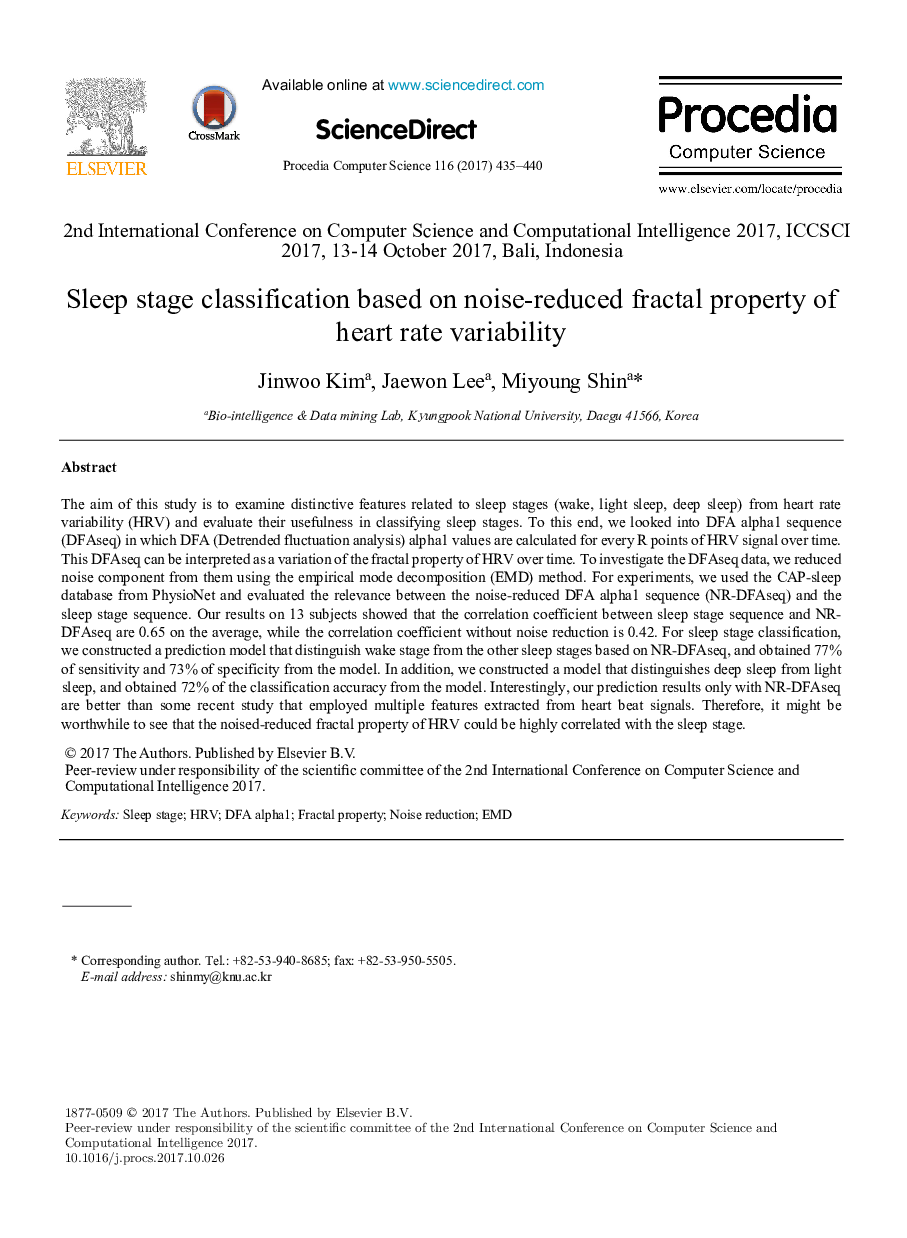| کد مقاله | کد نشریه | سال انتشار | مقاله انگلیسی | نسخه تمام متن |
|---|---|---|---|---|
| 4960472 | 1446499 | 2017 | 6 صفحه PDF | دانلود رایگان |
The aim of this study is to examine distinctive features related to sleep stages (wake, light sleep, deep sleep) from heart rate variability (HRV) and evaluate their usefulness in classifying sleep stages. To this end, we looked into DFA alpha1 sequence (DFAseq) in which DFA (Detrended fluctuation analysis) alpha1 values are calculated for every R points of HRV signal over time. This DFAseq can be interpreted as a variation of the fractal property of HRV over time. To investigate the DFAseq data, we reduced noise component from them using the empirical mode decomposition (EMD) method. For experiments, we used the CAP-sleep database from PhysioNet and evaluated the relevance between the noise-reduced DFA alpha1 sequence (NR-DFAseq) and the sleep stage sequence. Our results on 13 subjects showed that the correlation coefficient between sleep stage sequence and NR-DFAseq are 0.65 on the average, while the correlation coefficient without noise reduction is 0.42. For sleep stage classification, we constructed a prediction model that distinguish wake stage from the other sleep stages based on NR-DFAseq, and obtained 77% of sensitivity and 73% of specificity from the model. In addition, we constructed a model that distinguishes deep sleep from light sleep, and obtained 72% of the classification accuracy from the model. Interestingly, our prediction results only with NR-DFAseq are better than some recent study that employed multiple features extracted from heart beat signals. Therefore, it might be worthwhile to see that the noised-reduced fractal property of HRV could be highly correlated with the sleep stage.
Journal: Procedia Computer Science - Volume 116, 2017, Pages 435-440
